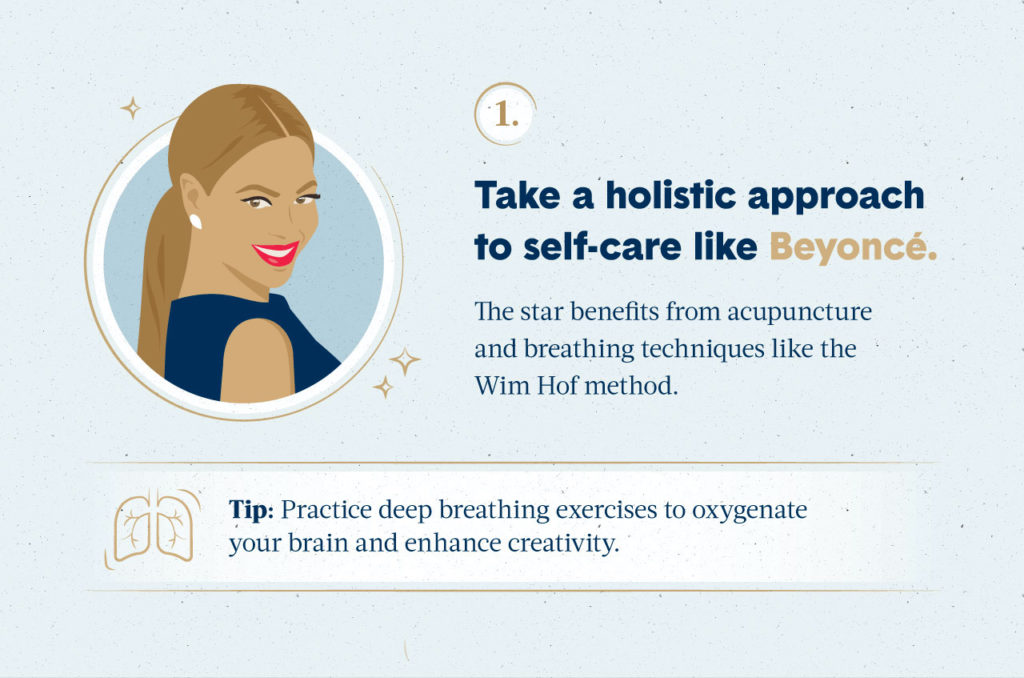
Many diseases can be prevented by practicing healthy living tips for seniors. It is crucial to be up-to-date on vaccines. Although it may seem obvious, the right habits could save your life. Hand washing is a surprising tip to improve your health and well-being. Hand washing is a great way to keep germs at bay, and can make you feel better for longer. This tip is worth learning more. You may be surprised to learn that this tip isn't something you've been practicing for many years.
Socialization
According to a study, older people who are socially active are less likely cognitive impairments or to develop dementia. Rush University Medical Center's Alzheimer's Disease Center also found that seniors who are social are less likely than others to develop depression. Senior socialization is crucial for improving overall health, stress management, and longevity. Socialization can be a great way to improve your mood and that of others.
Physical activity
Being physically active is one the top factors that can influence seniors' quality life. Regular physical activity not only improves overall health, but it helps delay many diseases associated with aging. Exercise strengthens the muscles, prevents the onset of joint pain, and reduces the risk of falling. Aerobic exercise programs are a great option for seniors with weak muscles and joint. These programs can even help people with arthritis stay active.

Nutrition
It is important to keep your mind active as a Senior Living tip. Research shows that sleep is good for concentration and memory. You can avoid caffeine, which can disturb your sleep pattern, and stay connected with family and friends. You can also engage with creative activities, such reading and solving crosswords. Although you should avoid processed grains and refined sugars, you should still consume them in moderation. Here are some tips for healthy living for seniors.
Regular wellness appointments
There are many healthy lifestyle tips for seniors. Regular checkups are important for early detection and treatment of illness. Seniors have a compromised immune system, so even minor ailments can lead to life-threatening complications. To prevent illnesses and maintain a strong immune system, senior citizens should regularly visit their doctors. These wellness visits also provide valuable information about your general health. These visits can also prevent injuries and falls.
Avoiding caffeine
Caffeine is good for your health. However, it is not essential for healthy living. Moderate amounts can do no harm. Many assisted living facilities now offer freshly brewed coffee and tea. Although caffeine can improve your energy levels and cause you to feel more awake, it can be harmful for seniors. To avoid these problems, you should limit your caffeine intake. Instead, use home care software and home care systems to monitor your senior loved one's intake.

FAQ
Is it more important to have mental health than work?
It is vital that everyone has a good mental health, especially those who work. You can relax if you are feeling stressed at work by going out with your friends, walking outside or listening to music.
You should speak to your boss if you are struggling with relaxation. They might be able suggest ways to reduce stress.
Your physical health is important too. It is important to eat well, exercise regularly, and get enough rest.
Why is it important to have a healthy mind?
Work, play, learn, and love. Mental health refers only to our overall health. When we refer to mental health, we mean the physical, psychological and spiritual factors that have an impact on us every day. There are many methods to care for yourself physically, mentally, emotionally and spiritually. You don’t have to do it all. Just get started!
Understanding where your mental health stands now is the first step toward improving it. Take this quiz to find out if you're doing enough to support your mental health. If your score is low you might need to change your lifestyle.
Congratulations! Let's now look at what you can do to maintain or improve your mental health.
-
Get enough rest. A good night's sleep is essential for keeping your brain healthy and sharp. The American Academy of Pediatrics (AAP), recommends that children get 7 to 8 hours of sleep per night.
-
Exercise Regularly. Exercise releases endorphins which can make you happy and less likely be stressed. Aim for 30 minutes of exercise five times per week.
What should you do if your mental health is in crisis?
If you are suffering from any type of mental illness, it is important to seek professional help. There are chances that you have suffered trauma or abuse in your past. This could have affected your perception of yourself.
An eating disorder, addiction, and other mental illnesses could also be a problem. These disorders can cause serious damage to your life.
You should not attempt to resolve them by yourself. You should speak to someone who understands what you're going through. Professional therapists can help you overcome these obstacles.
How can I prevent mental health issues?
Preventing problems with mental health is much easier said than done. But, here are some tips to keep in mind:
-
Don't drink alcohol. It can alter your moods and increase your chances of developing depression.
-
Avoid using drugs. Drugs can cause brain damage and worsen your symptoms.
-
Sleep enough. Sleep deprivation can make you feel anxious and depressed.
-
Exercise regularly. Exercise releases endorphins in your body, which makes you happy.
-
Eat healthy foods. Do not eat junk food. You will feel lethargic and depressed.
-
Spend quality time with those you love. Spending quality time with the people you love can lift your mood.
-
Have fun. Enjoy life and try new things.
-
Take breaks from social media. Social media can make you feel isolated and lonely.
-
Take care of yourself. Treat yourself nicely, even if you aren't feeling great.
-
Ask for help. Ask for help if you are having difficulty coping. Talking to someone you trust can be a help.
-
It's okay to let go. Crying helps to relieve tension and stress. It does not mean that anything is wrong.
-
Keep busy. Find something you like to do.
-
You should practice good hygiene. Poor hygiene can make you feel unkempt and unattractive.
-
Stay connected. Staying connected will help you stay positive.
-
Learn how relax. You can relax by using relaxation techniques such as yoga or meditation to help you manage stress.
-
Find meaning in your work. Find meaning in your hobby or work can bring you fulfillment.
-
Be present in the moment. Concentrate on the present moment and you won't be so worried about the distant future.
-
Set goals. Goal setting can help you be motivated to reach your goals.
-
Do something nice for you. It can increase self-esteem to do something nice for yourself.
-
Practice gratitude. Gratitude will help you appreciate all the positive things in your life.
-
Volunteer. Volunteering is an enjoyable way of spending time and making a difference in this world.
-
Give back. Giving back can make you feel satisfied.
-
Pay attention to warning signs. Don't be afraid to ask for help if your behavior changes.
Why is students' mental health important?
Students' mental health is crucial because it allows them to be focused on school and excel academically. If you don’t feel happy, you won’t do well in school. Students with depression frequently miss class which can lead to low grades. This can lead to dropping out from high school or college.
Talk to your teachers or parents if you are struggling with depression. They can help get you the care you deserve.
It is important to understand that not everyone with depression needs medication. Talk therapy is an effective treatment for many people. Counselors are a good option if you want to get help.
How does mental health affect my relationships?
Your mental health can have a profound impact on your daily life. It can impact your ability to function well at home, school and work. It can also be difficult to develop meaningful relationships when you have mental health problems.
If you are dealing with a mental disorder, it can be easy to isolate yourself. You might avoid social situations or feel unworthy because no one understands.
It's important to remember, however, that people want to be with you. They just need to learn how to approach and approach you.
So, if you're having trouble connecting with others, try talking to them about your feelings. Tell them how you're feeling and ask them for their advice.
Statistics
- Similarly, while there is some agreement about the boundaries of typical mental disorders 2, there is likely less agreement about those for positive mental health. (ncbi.nlm.nih.gov)
- It means no drinking any alcoholic beverages and no taking any drugs that aren't 100% natural.
- Neuropsychiatric diseases are the leading cause of death and disability in the U.S., accounting for 18.7 percent of all years of potential lifespan loss and premature mortality.
- In any given year, an estimated 18.1% (43.6 million) of U.S. adults ages 18 years or older suffered from any mental illness, and 4.2% (9.8 million) (healthypeople.gov)
- Similarly, for positive mental health, there is likely to be substantial agreement about some typical components (e.g., resilience to stress) 6, and controversy about more atypical components (e.g., career consolidation). (ncbi.nlm.nih.gov)
External Links
How To
How to manage stress
Stress is a normal part of life; however, when we feel stressed, we want to find ways to relax and relieve our tension. Stress affects every aspect of your life. Stress can cause problems like neck pain, back pains, headaches, stomach aches and constipation. You may even develop ulcers if you're under chronic stress.
There are many options to reduce stress. Exercise increases endorphin release, which can make you happy and relaxed. Meditation can reduce stress levels by slowing down and taking deep breaths. Yoga is another great way of reducing stress and improving overall health.
Learning how to manage stress and eliminating it completely is the best way to manage it. Ask someone who does.